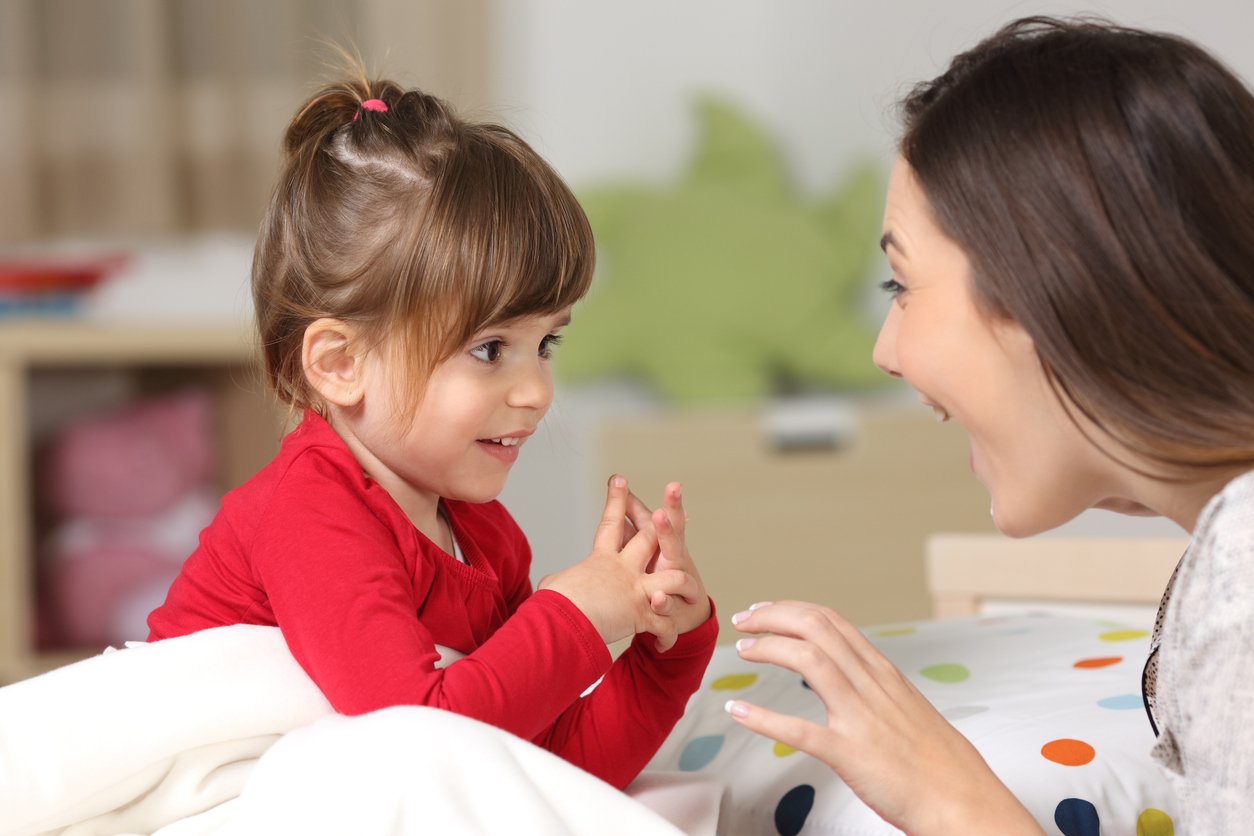In every pediatric speech therapy session in our practice, children are learning, growing, expanding and gaining new skills! In addition, pediatric therapists are trained to create therapy sessions that children enjoy. When our young patients are having fun, they are being engaged in the beneficial therapy itself. Then, when that day’s therapy is done, they will want to come back for the next session.
That’s how we build an environment in which our young patients can overcome any barriers to their abilities to form words, speak easily, convey their thoughts and feelings and much more. Once we establish this positive, uplifting atmosphere, we can get our serious work done!
The Therapeutic Techniques Used to Develop Language Skills
Within this enjoyable environment, we can dedicate ourselves to helping our young patients progress through a tailor-made speech therapy program. Every session is carefully planned to provide the next stepping stone to an individual child’s best development. We have hundreds of different tools and techniques at our disposal and make precise selections that we feel are most suitable for that day.
Here’s how a pediatric speech therapy session could shape up, after the initial assessment and treatment plan have already been completed:
- The child is welcomed in and made comfortable with a brief conversation at the child’s level, related to subjects the child will respond to. A younger child may be offered toys or games to quickly engage them.
- As the child plays, the speech therapist interacts with the child, asking questions the child can answer, and helping them form letters they may struggle with. The play may be chosen specifically to provide the next improvement the child needs, such as the ability to form certain letters. If the child struggles to pronounce the letter “p,” they may play with toy puppies, for example.
- From here, the therapist could bring out a simple jigsaw puzzle and teach the child how to put the pieces together. Again, lots of use of the letter “p”! Whenever the child assembles pieces of the puzzle, she gets a big cheer from the therapist!
- When the child struggles to pronounce the letter, the therapist uses pictures or models the way to form the letter using her own mouth or a playful puppet. Achievement of the correct sound is reinforced with more praise and encouragement.
- At the end of the therapy session, the therapist documents the day’s progress so the next session can pick up right where this one left off. Additionally, mom and dad may be given some helpful information on how the day’s session went and how they can continue the child’s progress at home.
This is only one example of how a speech therapy session could possibly go. There are as many variations as there are children and their needs.
The Multitude of Speech Challenges That Respond to Speech Therapy
In addition to difficulty making certain speech sounds, there are so many other challenges that skilled speech therapists can help children with. For example:
- Speech that is hard to understand
- Difficulty understanding the speech or directions of others
- Trouble expressing one’s feelings or ideas
- Limited vocabulary
- Stuttering
- Difficulty responding or answering appropriately
- Challenges with taking turns in conversation
- Understanding jokes, sarcasm or figures of speech
- Strained or hoarse vocal quality
- Breathy, high or low-pitched voice
- Challenges with organizing thoughts before speaking
- And many, many others.
Speech Therapists Enhance Communication for a Better Life
In short, pediatric speech therapists are specialists in improving young people’s abilities to speak clearly, express themselves easily and understand the communications of others. Through all these improvements and many more, pediatric speech therapists help children of all ages enjoy life more. These youth are helped to overcome communication challenges that could otherwise frustrate and isolate them. With more open and enjoyable communication, the whole family atmosphere improves!
When you need help, call Let’s Communicate Pediatric Therapy Services at (678) 963-0694 to schedule an evaluation.


